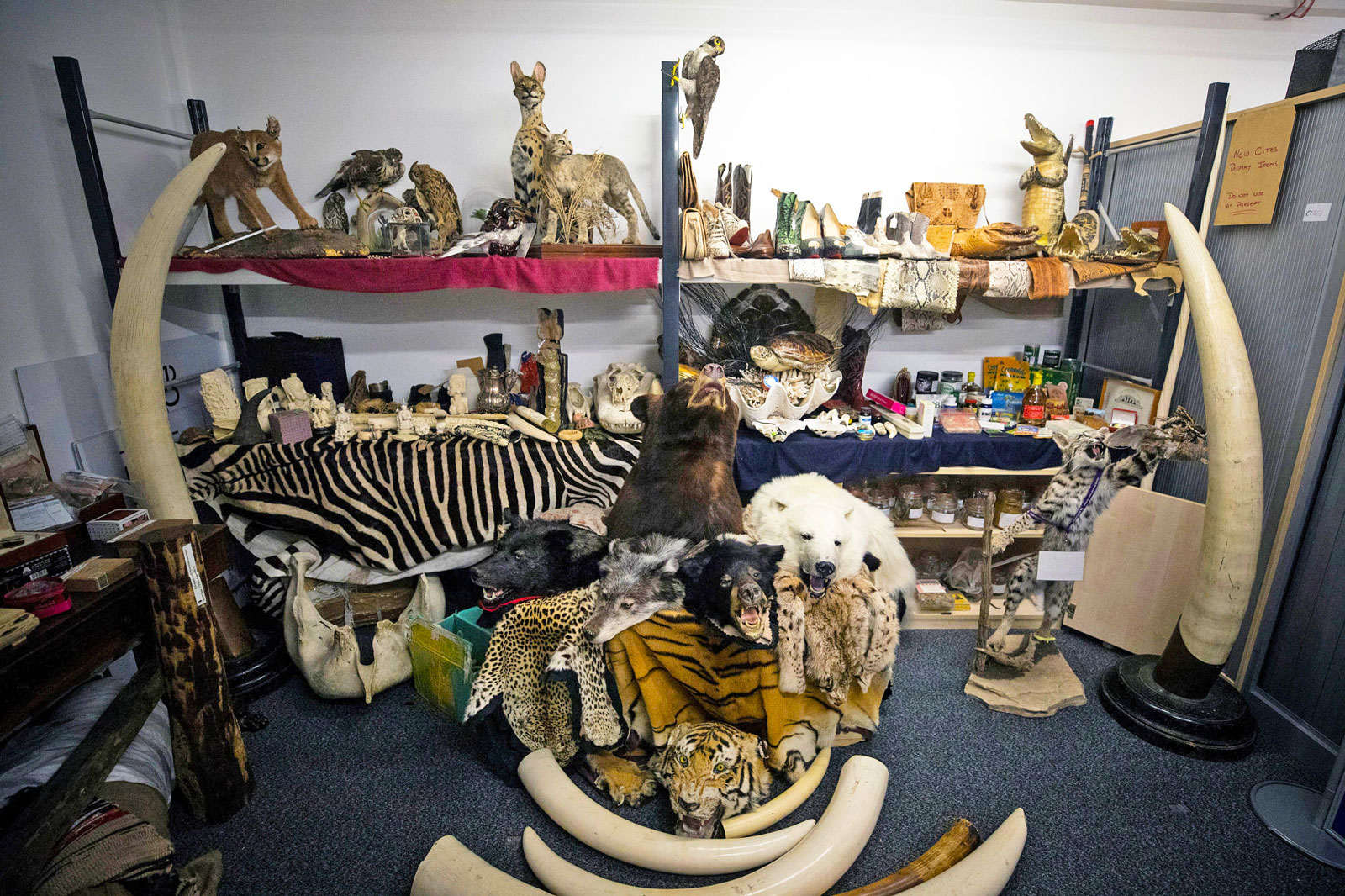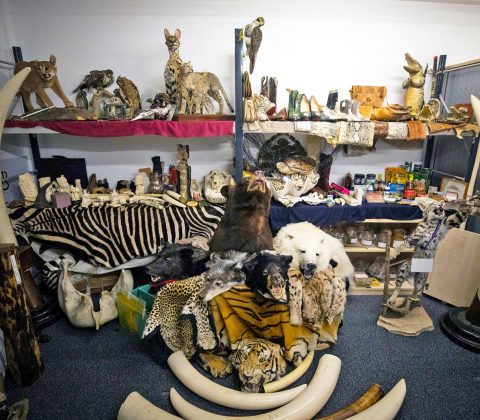Posts Tagged: giants
How Disney’s A Real Bug’s Life docu-series turns insects into giants
Pixar‘s 1998 movie, A Bug’s Life, brought tiny CGI ants to the world’s largest screens. National Geographic’s new docu-series, A Real Bug’s Life inverts that, turning insects into giants in our homes. The only thing digital about the critters featured in the Disney+ series, though, is the technology filming them. But like its animated counterpart, the show explores the world they live in and their adventures in ways we’ve never seen before.
With its focus on insects, A Real Bug’s Life isn’t limited to specific remote habitats. Over the course of the series you’ll visit arid desert planes, tropical jungle, concrete jungle, a rural farm in the UK and even the humble backyard. But thanks to a series of innovations, we see these worlds from entirely new perspectives. “I think that the look and feel of this show, and this is not just me saying it, I don’t think that there’s anything else that looks like this or has ever looked like this” Nathan Small, a self-shooting Producer/Director who worked on the show told Engadget.
The series opens in New York City where we follow the misadventures of an adorable bold jumping spider. While our eight-legged hero begins his journey on a city rooftop, it’s not long before we’re down at street level and joined by a cast of intrepid ants, industrious flies and a menacing praying mantis. Some of the shots instantly stand out without you fully knowing why. But Small does.
He explained that macro professionals have long favored 60- or 100mm lenses, which give incredible detail but have a very shallow depth of field (DOF). “Which means that there’s no context ever, there’s no geography, and you’re always in this sort of very smushy, blurry world,” he said. “In the last few years, there have been lots of what are called ‘probe’ lenses released. The main one, which was a bit of a game changer, is made by a company called Laowa and it’s a 24 millimeter” he added.
A probe lens looks exactly how you’re imagining — more like a vacuum cleaner attachment — but the shots it produces have two key advantages, Small explained. The first one is practical: the 16-inch barrel means you don’t need to be as physically close to the bug you’re shooting. The second, and the real reason those shots are standing out, is that with a 24mm lens you have a much deeper DOF, leaving much more in focus. “You get that geography and you get that setting which gives it a really cartoony and fresh… kind of funky look.” All I’ll say after watching that episode is, a New York all-beef will never seem the same again. You’ll also see a fly dining on a burger in excruciating, stomach-churning detail.
Perhaps the most surprising thing about the Laowa lens is that it’s relatively affordable. At $ 1,600 it’s not cheap, but it’s the same price as a regular (albeit very good) Canon 85mm lens that serious hobbyists might consider.
Small also explained that sometimes techology isn’t changing the shot, instead it can improve what happens within it. “Not very long ago, all the lights that I was using were your classic film lights, Arri Blondes and all that kind of thing. They’re very hot” he said. “LED lights, they’re super bright, but they’re cold, so it means we’re getting all the light we need without cooking the animal, which obviously no one wants, while letting it act in a natural way” he added. Capturing critters trying to escape the heat is far less interesting than watching them do what comes naturally.
But the thing that enabled many of the most cinematic shots in A Real Bug’s Life isn’t available to buy, at least not off the shelf. “I never really touch the camera any more,” Small said. “I’m doing everything on custom built motion control rigs. I have a robot that I’ve been working on for the last five years, gradually changing things.” Small’s “robot” is a machine-engineered rig, hewn with the same precision as medical tools — something he says is vital as any shake or wobble at the scale he’s working at is hugely magnified.
The robot allows him to work at a distance and monitor via a large display for a better idea of what the things will look like on a TV. Two rails with sliders provide dual axes of movement while a rotating stage and tilt control provide a full range of motion that, put together, opens up shots you could only dream of with a tripod and slider alone. The robot’s “brain” uses an eMotimo motion controller and he directs it all with a PlayStation 2 DualShock. After years of updating and refining, the robot can finally deliver the dynamic macro footage we enjoy in the show. Head to the episode set on the British farm if you want to see Small’s cinematic robo-shots for yourself.
Some things still require a human though. If you ever wondered how they capture seemingly impossible moments, like a spider spinning a web, the answer is… patience. In the show we see an elephant hawk-moth emerging from its chrysalis. “I just didn’t really sleep for about five days, that’s short of it” he said. “You collect a lot of them so you have options. I had my camera on a big rail and then as soon as I saw one start to twitch and move, I slide the camera along and bang, you’re on that one.” The final shot in the show lasts barely 10 seconds, but without it the narrative falls apart, such is the life of a wildlife photographer.
If you want to have a go at recording an emerging elephant hawk-moth or bold jumping spider but don’t have Disney-level budgets, don’t worry. Small says that today’s consumer products are already more capable than a lot of pro gear was not that all that long ago. Specifically when it comes to working in low light. “Before, you were stuck at like ISO 200, which is a nightmare for macro, because everything is too dark or noisy,” he said. “[Now] you can shoot at 3200 and still get really clean images.” As he mentioned earlier, these higher apertures like f11 or above avoid those “smushy” backgrounds. He also says that a lot of his kit is put together with SmallRig parts (no relation).
For the camera itself, that will largely depend on what you want to capture. For close-up macro photos (rather than video), Small says the Olympus system is preferred within the industry, thanks mostly to its internal focus stacking/bracketing. In the same way HDR photos blend multiple exposures for more even, natural light, focus stacking does the same but with, well, focus, so you can have your subject and background pin sharp.
More of a bird person? Then Canon seems to be the industry favorite according to Small. Particularly the larger sensor models and RF mount lenses. Canon’s stellar auto-focus locks onto animals really quickly, and can keep it locked even when the subject is moving (as birds are wont to do). The RF lenses also have a great reputation thanks to their blend of speed and excellent built-in stabilization making them a good option for general wildlife photography too. When not shooting for work, Small uses a Canon EOS 5DS. “I think that’s a good all round camera that does everything that I need it to. Stills are like my hobby now, which is quite sad, isn’t it? Because it’s very close to my job.”
A Real Bug’s Life, narrated by Awkwafina, premieres on Disney+ Jan 24.
This article originally appeared on Engadget at https://www.engadget.com/disneys-a-real-bugs-life-docu-series-review-143009674.html?src=rss
Engadget is a web magazine with obsessive daily coverage of everything new in gadgets and consumer electronics


Tech giants like Google and Alibaba are working to save endangered species
 Google, eBay and other technology leaders are aiming to protect the world's animals. Why? In a widely unregulated social-media world, many tech platforms have become a haven for the wildlife black market, a $ 20 billion industry. The sale of illegal…
Google, eBay and other technology leaders are aiming to protect the world's animals. Why? In a widely unregulated social-media world, many tech platforms have become a haven for the wildlife black market, a $ 20 billion industry. The sale of illegal…
Engadget RSS Feed
